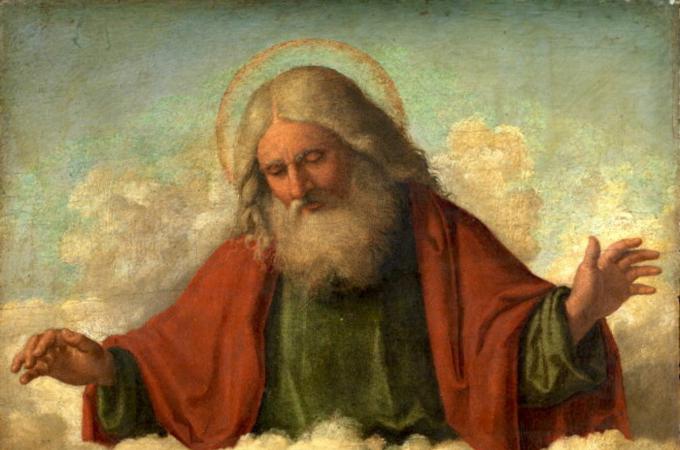God and masculine pronoun
Q. I would very much like to know the church's official position on whether God should be referred to as "Father" (that is, in masculine terms) or as a genderless being. I find it troubling when the words in traditional hymns are changed to remove any references to "his" or "him." Recently I was singing from memory the refrain, "Lift up your hearts to the Lord in praise of his mercy," only to hear myself "out of sync" with many others in the congregation who were singing from the hymnal, "Praise God's gracious mercy."
In a similar way, I often hear during the Liturgy of the Eucharist many people responding, "May the Lord accept the sacrifice at your hands for the praise and glory of God's name, for our good and the good of God's holy church." And yet, when I look up that response in the Roman Missal itself, I find "his name" and "his holy church."
What is next? I fear the day when some people will start the Lord's Prayer with, "Our God who art in heaven." I feel that we are pandering to a minority of overly sensitive feminists who have difficulty comprehending God's identity as a male being, as our Father -- and yet that is exactly how Jesus referred to God and taught us to pray to him. He is not some generic, abstract and neutered being. (City of origin withheld)
A. It is the clear teaching of the church that God is neither male nor female. As the divine being, God transcends gender.
The Catechism of the Catholic Church says: "In no way is God in man's image. He is neither man nor woman. God is pure spirit in which there is no place for the difference between the sexes. But the respective 'perfections' of man and woman reflect something of the infinite perfection of God: those of a mother and those of a father" (No. 370).
The traditional use, then, of the masculine pronoun does not equate to a belief in the masculinity of God.
Having said that, I would make the argument that -- for the sake of uniformity within a congregation and across the wider church -- it is best to stick with the responses given in the Roman Missal and hope that the liturgical translators eventually catch up with the church's theology.
As for the Our Father, that of course has a special sacredness because it was the prayer taught directly by Jesus. In order to convey the ready accessibility to us of the Lord, Jesus called his Father by the Aramaic word "Abba" -- which, some scholars say, really translates to our warm and familiar word, "Daddy."
That word must have shocked Christ's Jewish listeners, who felt that God was so far above them that they ought not even pronounce his name. Since Jesus used these very words, this prayer ought never to change. (Can you imagine if Jesus had invited us instead to pray to "Our divine and genderless being"?)
Q. When did the church stop asking for money for indulgences? And why did they ask for money in the first place? (Wichita, Kansas)
A. I am almost reluctant to answer your question because, as asked, a simple response would imply a serious admission. Though it has been accused for centuries of having "sold" indulgences, the Catholic Church never approved such a practice.
Undeniably, individual Catholics were guilty of selling indulgences, but the practice was never countenanced by the church. Coupled with these abuses, though, was the fact (and this gave a basis to Martin Luther's challenge) that indulgences could be gained for giving alms to one of the church's charitable endeavors.
All of this came to an end with the Council of Trent, which decreed that the church "ordains in a general way by the present decree that all evil traffic in them (indulgences), which has been a most prolific source of abuses among the Christian people, be absolutely abolished." According to The Catholic Encyclopedia, soon after, in 1567, Pope Pius V "canceled all grants of indulgences involving any fees or other financial transactions."
- Father Kenneth Doyle is a columnist for Catholic News Service



















